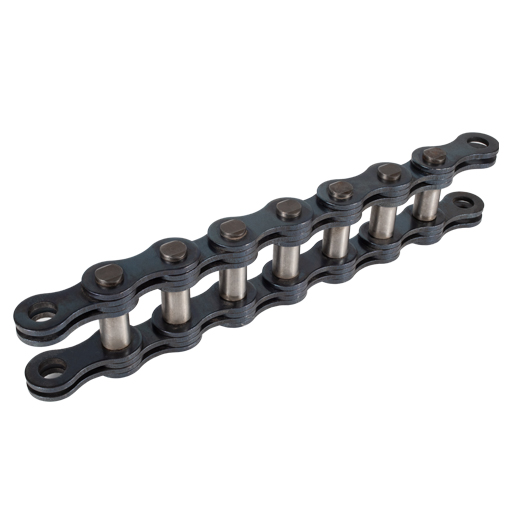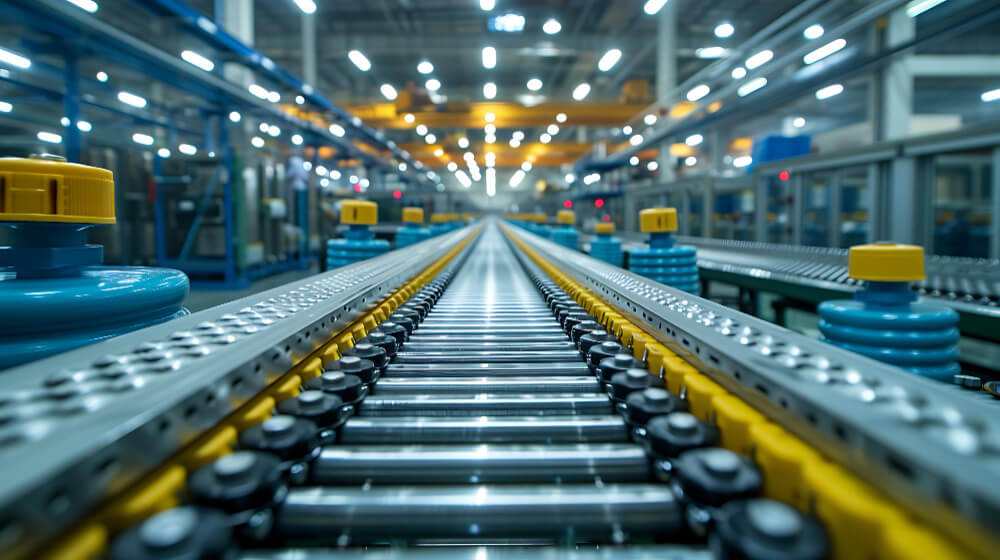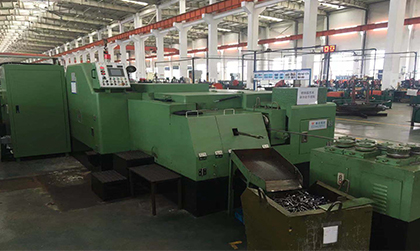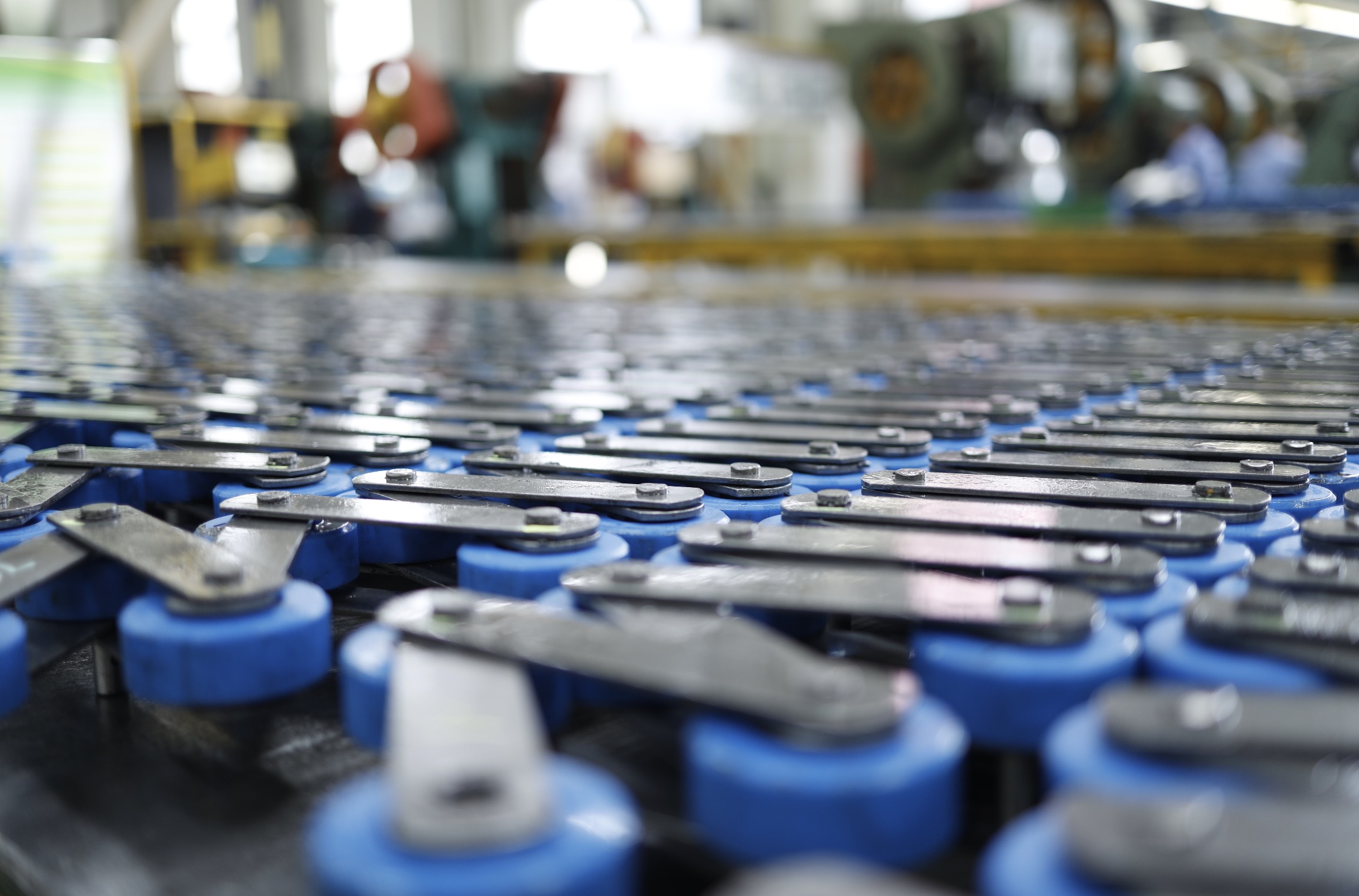If you’ve ever dealt with heavy-duty machinery or industrial lifting, chances are you’ve come across a leaf chain. These chains might not be as flashy as some high-tech gadgets, but they’re the backbone of many industries.
From forklifts to hoists, leaf chains handle tough jobs that demand strength, durability, and reliability. But what sets them apart, and why should you care?
Why Leaf Chains Matter
Imagine trying to lift a loaded forklift mast chain without the right equipment. Sounds impossible, right? That’s where the leaf chain comes in.
These chains are designed to handle extreme tension, making them perfect for heavy lifting. They also last longer, which means less downtime and fewer replacements.
If you’re using a forklift chain, you’ve already experienced the power of leaf chains. They don’t just work—they outperform.
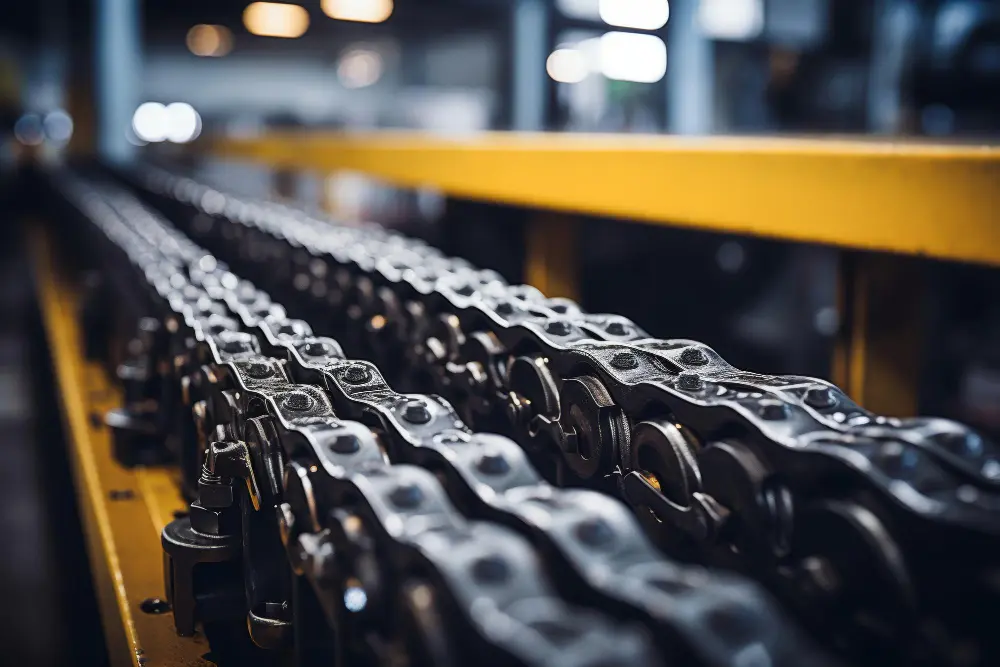
Looking for a Reliable Leaf Chain Supplier? Request a Free Quote Now!
Key Benefits of Leaf Chains
1. High Tensile Strength
Leaf chains are built tougher than most other chains out there. They handle loads that would break regular chains.
The secret is in how they’re built—multiple plates stacked with strong pins create amazing lifting power.
Force spreads evenly across all the plates so they can tackle the heaviest jobs without breaking a sweat.
2. Versatility in Applications
You’ll find these chains working hard in warehouses and factories everywhere. They power everything from forklifts to manufacturing equipment.
One type of leaf chain can often do multiple jobs in your operation. This saves you money and storage space.
They work great in construction sites, factories and anywhere else you need reliable lifting power.
3. Compact Design
These chains pack a lot of strength into a small package. You won’t believe how much they can lift for their size.
The slim design lets them work in tight spaces where other chains just won’t fit.
They’re perfect for equipment like forklift masts where space is tight but you need serious lifting power.
4. Long Lifespan
Quality leaf chains last longer than most other types. You won’t need to replace them as often.
They’re built to keep going with less maintenance and fewer emergency fixes.
Even though they cost more upfront, they save you money over time by lasting longer.
5. Reliable Performance
You can’t take chances when you’re lifting heavy loads. Leaf chains get the job done right every time.
These chains have been the go-to choice in tough jobs for decades. There’s a reason for that.
They keep performing day after day no matter how hard the work gets.
Applications of Leaf Chains
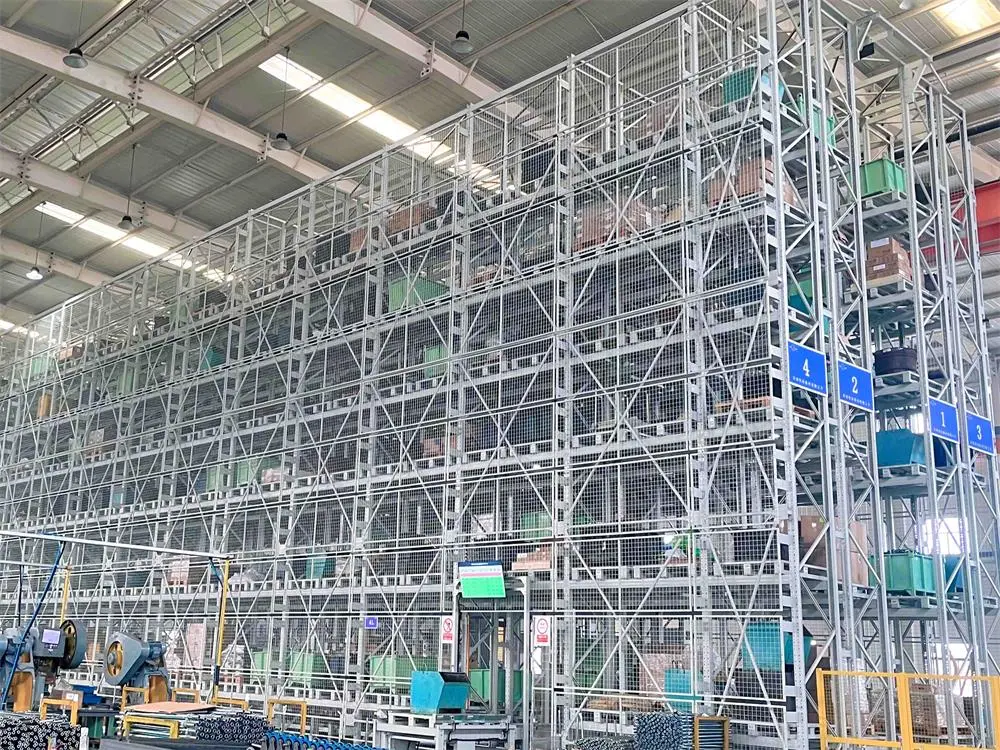
Leaf chains get the hard jobs done. If there’s heavy lifting, you’ll probably find them in action.
- Warehouses: They’re what forklifts use to move pallets and other heavy loads.
- Construction Sites: Cranes rely on them to handle big, bulky materials every day.
- Marine Work: From boat lifts to docks, they stand up to heavy loads and salty conditions.
- Garages: When vehicles need repairs, these chains make lifting them safe and simple.
Need help with your forklift chain? Read our guide on how to inspect and maintain a forklift chain.
Factors to Consider When Choosing a Leaf Chain
Tensile Strength
Tensile strength is the backbone of any reliable leaf chain.
The higher the tensile strength, the more weight the chain can safely handle.
This strength also reduces the risk of wear and tear, saving you from frequent replacements.
If your work involves heavy machinery, investing in a high-tensile chain is a no-brainer.
Application Needs
The type of job you’re doing will decide the kind of chain you need.
For forklifts, you’ll want chains that operate smoothly under constant use.
If the chain will handle harsh environments, durability and coating are critical.
Choose a chain designed for your specific equipment, like a forklift mast chain or hoist.
Pitch Size
Pitch size ensures the chain fits perfectly with your equipment.
It’s measured by the distance between the pins and varies by chain type.
A BL634 chain with a ¾-inch pitch works well for most forklifts.
Double-check your equipment specs before buying to avoid fit issues.
Plate Thickness
Thicker plates mean the chain can handle more stress without bending.
If you’re lifting heavy loads, this factor is non-negotiable.
Chains with thinner plates might work for light tasks but won’t hold up under pressure.
Look for options that balance strength with smooth performance.
Corrosion Resistance
Harsh environments can wear down even the toughest chains.
If your chain will face saltwater, chemicals, or extreme weather, go for one with a protective coating.
These coatings extend the life of the chain, making it more cost-effective in the long run.
For marine or industrial applications, corrosion resistance is a must-have feature.
Looking for trusted leaf chain manufacturers? Check out our guide to the top leaf chain manufacturers in 2024 for expert insights.
Why Universal Chain is the Right Choice
Selecting a high-quality chain is essential for ensuring safety, durability, and efficiency in your operations. That’s where Universal Chain delivers unmatched reliability with its wide range of products.
With over 50 years of expertise, Universal Chain has built a reputation for producing high-tensile, durable chains that perform in even the most demanding environments.
What Sets Universal Chain apart?
- Quality You Can Trust Every chain goes through strict testing to meet ISO4347 and ANSI standards. You get reliability that keeps your equipment running smoothly.
- Support Around the World With presence in over 100 countries, Universal Chain understands your industry challenges. You get solutions backed by global experience and local support.
- The Right Chain for Every Job From the heavy-duty BL634 to specialized solutions, you’ll find exactly what your operation needs. Our range covers everything from basic lifting to custom applications.
View our full catalog or contact us to learn more about your leaf chain options.
FAQs About Leaf Chains
1. What is a leaf chain, and how is it different from a roller chain?
A leaf chain is built for lifting and hoisting heavy loads. Unlike roller chains, which use sprockets, leaf chains rely on stacked plates and pins for strength.
2. Where are leaf chains commonly used?
Leaf chains are used in forklifts, cranes, hoists, and marine applications. They’re essential for industries that handle heavy lifting.
3. How do I choose the right leaf chain for my equipment?
Consider factors like tensile strength, pitch size, and the type of application. For heavy-duty tasks, chains like the BL634 chain or BL646 chain are ideal.
4. Are leaf chains resistant to corrosion?
Some leaf chains come with protective coatings for harsh environments like saltwater or chemical exposure. This adds to their durability and lifespan.
5. How often should I inspect my forklift mast chain?
Regular checks are key—ideally weekly or bi-weekly. Look for wear, elongation, or damage to ensure safety and prevent breakdowns.
